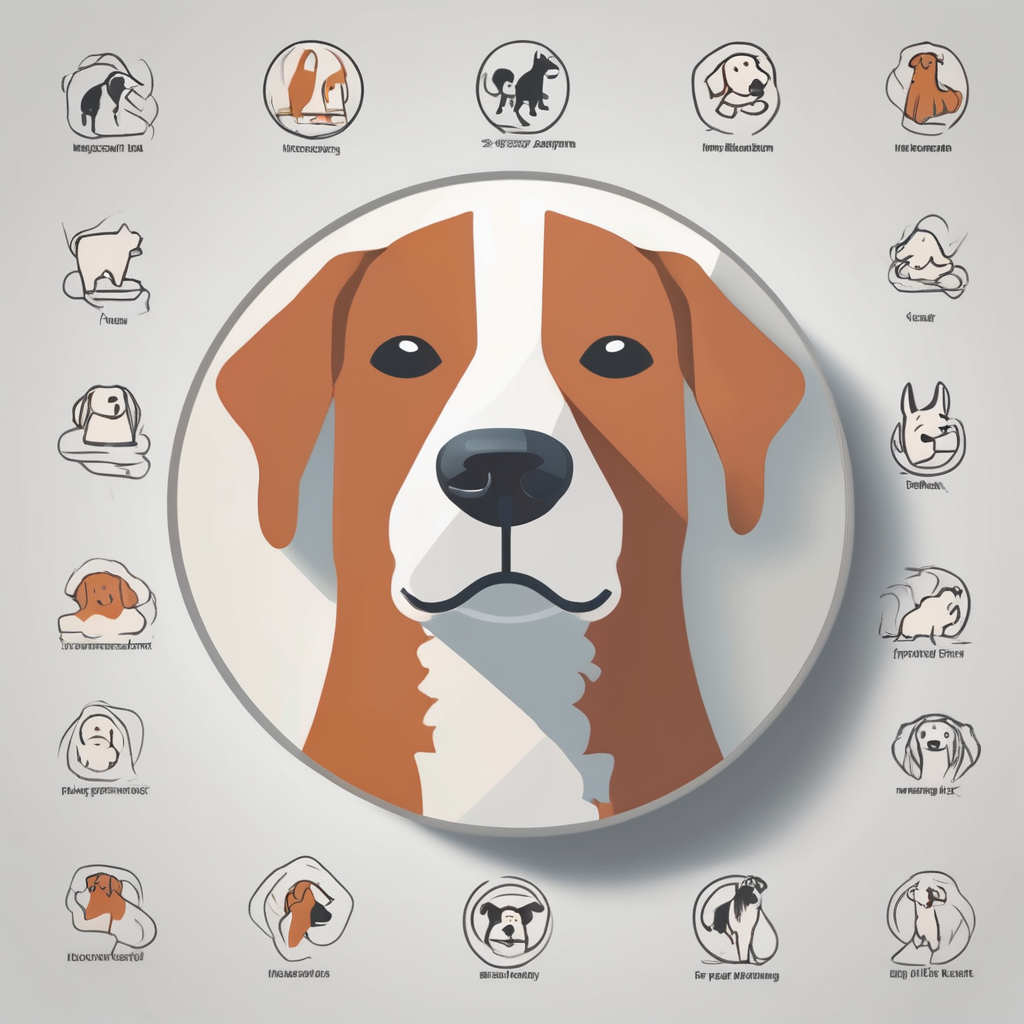Understanding Renal Health in Aging Dogs
In the twilight years of a dog’s life, renal health becomes increasingly significant. As dogs age, their kidneys may naturally decline in function, making them susceptible to various common renal issues. Older dogs often face challenges like chronic kidney disease, which can manifest through symptoms such as increased thirst, frequent urination, and lethargy. Detecting these signs early is crucial.
Veterinary consultation should be sought when these symptoms first appear to ensure a comprehensive health assessment. Early intervention can slow the progression of renal conditions and improve the dog’s quality of life. Regular check-ups with a veterinarian allow for the monitoring of kidney function over time and can guide dietary and lifestyle adjustments tailored to individual needs.
In the same genre : Ultimate Plant-Based Protein Solutions for Your Dog’s Vegan Diet: An All-Inclusive Guide
Moreover, understanding the function and health of a dog’s kidneys provides pet owners with insights necessary for supporting their aging pets. Ensuring that these beloved companions receive the best possible care involves keeping an eye on renal health through vigilant observation and professional advice, laying a path for a healthier, more comfortable aging process.
Key Nutritional Components for a Renal Diet
Understanding the nutritional components of a renal diet is key in supporting kidney function in aging dogs. The role of protein is crucial; maintaining quality over quantity is vital. High-quality proteins, such as those found in lean meats and certain fish, are preferred as they generate fewer waste products that kidneys must eliminate, thus reducing strain on renal health. Selecting the right type of protein ensures that dogs receive the necessary nutrients without overburdening the kidneys.
Also read : Top Tips for Nurturing a Joyful Goldendoodle Puppy in Scotland’s Urban Landscape
Management of phosphorus and potassium levels in a renal diet is equally important. Elevated phosphorus levels can accelerate kidney damage, so low-phosphorus foods, like certain vegetables and grains, can benefit an aging dog. Similarly, balanced potassium levels support heart and muscle function, which can be crucial as dogs age.
Incorporating essential fatty acids such as omega-3 can significantly benefit kidney health. These acids help reduce inflammation and improve circulation, which are instrumental in maintaining renal health. By focusing on these components, dog owners can help their pets lead healthier, more comfortable lives.
Portion Sizes and Feeding Guidelines
Establishing correct portion sizes is crucial for aging dogs with renal issues. Since older dogs have lower energy requirements, meals should be tailored to avoid excess calorie intake while providing adequate nutrition. Consult your veterinarian for precise portion recommendations based on your dog’s size, breed, and activity level.
Meal frequency is another vital component. Frequent, smaller meals help ease the burden on kidneys and maintain stable energy levels. Typically, feeding 3 to 4 small meals per day is advisable for dogs with renal conditions, as this helps manage food absorption and renal health effectively.
When adjusting portions, consider your dog’s size and activity level. A less active, smaller dog needs smaller portions compared to a larger, active one. Always factor in the dog’s current health status and any veterinary advice received. By adhering to these guidelines, you ensure dietary plans support your dog’s kidney function, catering to their unique needs during their aging process. This approach overall encourages better health management, prolonging comfort and quality of life.
Sample Meal Plans for Aging Dogs
Exploring sample meal plans designed for aging dogs can effectively support renal health. They focus on providing balanced nutrition while accommodating specific dietary restrictions.
Breakfast Options
A gentle start for aged dogs involves easily digestible ingredients. Consider a blend of cooked white rice, modest portions of boiled chicken, and a small spoonful of canned pumpkin. The rice is easy on the stomach, while chicken offers quality protein without straining kidney function. Pumpkin adds fibre and aids digestion.
Lunch Options
Midday meals can feature grains like quinoa, paired with steamed green beans and small portions of cooked salmon. Quinoa provides essential amino acids, critical for aged canines, while salmon ensures an intake of essential fatty acids, beneficial for reducing inflammation and maintaining renal health.
Dinner Options
In the evening, serve a dish with cooked sweet potatoes, finely chopped carrots, and turkey breast. Sweet potatoes are rich in antioxidants, supporting renal function, while carrots deliver necessary vitamins. Incorporating adequate hydration through moist food options aids kidney mechanics. Vary recipes to meet a dog’s unique health needs, providing nutritious and tasty selections.
Transitioning to a New Renal Diet
Transitioning your dog to a renal diet requires careful planning to ensure a smooth change in their eating habits. Start by incrementally introducing the new diet over a period of 7 to 10 days. Gradually mix the new food with their existing diet, increasing the proportion of the renal diet each day.
Observe for any signs of discomfort, such as vomiting, diarrhoea, or a refusal to eat. If these arise, slow down the transition process or consult a veterinarian. Keeping an eye on weight changes is equally important, as fluctuations could indicate nutritional imbalances or kidney strain.
Monitoring water intake is crucial, as dehydration can exacerbate renal issues. Ensure clean, fresh water is always available to support kidney function. A steady routine, maintaining consistency in meal times and portions, helps ease your dog into their new dietary plan without additional stress.
By remaining attentive to these details and being patient, you enhance adherence to the renal diet, supporting their health needs effectively. Transitioning can ultimately foster a more robust quality of life for your pet.
Veterinary Recommendations and Monitoring
Regular veterinary advice is essential in managing renal health for aging dogs. Routine check-ups help in early detection of kidney issues, providing opportunities for timely interventions. These appointments allow for comprehensive monitoring of renal function, potentially identifying problems before symptoms appear.
Tests such as blood work, urinalysis, and imaging studies are recommended regularly. Blood tests assess waste levels that the kidneys should filter, while urinalysis checks for protein levels and concentration in urine, indicating renal health. Imaging studies, like ultrasounds, provide visualization of the kidney’s structure and size, aiding in diagnosis.
Monitoring health consistently ensures that dietary and lifestyle adjustments align with the dog’s current condition. Veterinary collaboration supports a tailored approach to dietary needs, considering the unique challenges each dog may face. This collaboration is crucial in adjusting portion sizes and nutritional components, as well as setting appropriate feeding schedules.
By maintaining open communication with a veterinarian, dog owners can effectively manage their pet’s renal health, enhancing their quality of life and influencing long-term health outcomes in a positive manner.
Benefits of a Tailored Renal Diet
The benefits of a tailored diet for dogs with renal issues are profound, offering both immediate and long-term health improvements. A well-structured renal diet supports kidney function, slowing the progression of renal diseases and easing the workload on these vital organs. Such diets enhance overall health by ensuring proper nutritional intake without overwhelming the kidneys.
A tailored diet significantly boosts quality of life for aging dogs. By managing phosphorus and protein levels, it helps limit waste buildup, reducing symptoms like vomiting and lethargy. Essential fatty acids included in these diets also mitigate inflammation, aiding better mobility and energy levels.
When owners provide a personalized diet based on their dog’s specific health needs, they notice fewer health complications and a more comfortable life for their pets. Strategies such as adjusting portion sizes and incorporating nutrient-rich foods play a crucial role in long-term renal health management. Implementing these diet changes not only allows older dogs to live more vibrant lives but also strengthens their resilience against potential health challenges. Such dietary interventions are invaluable for extending their happiness and vitality.

